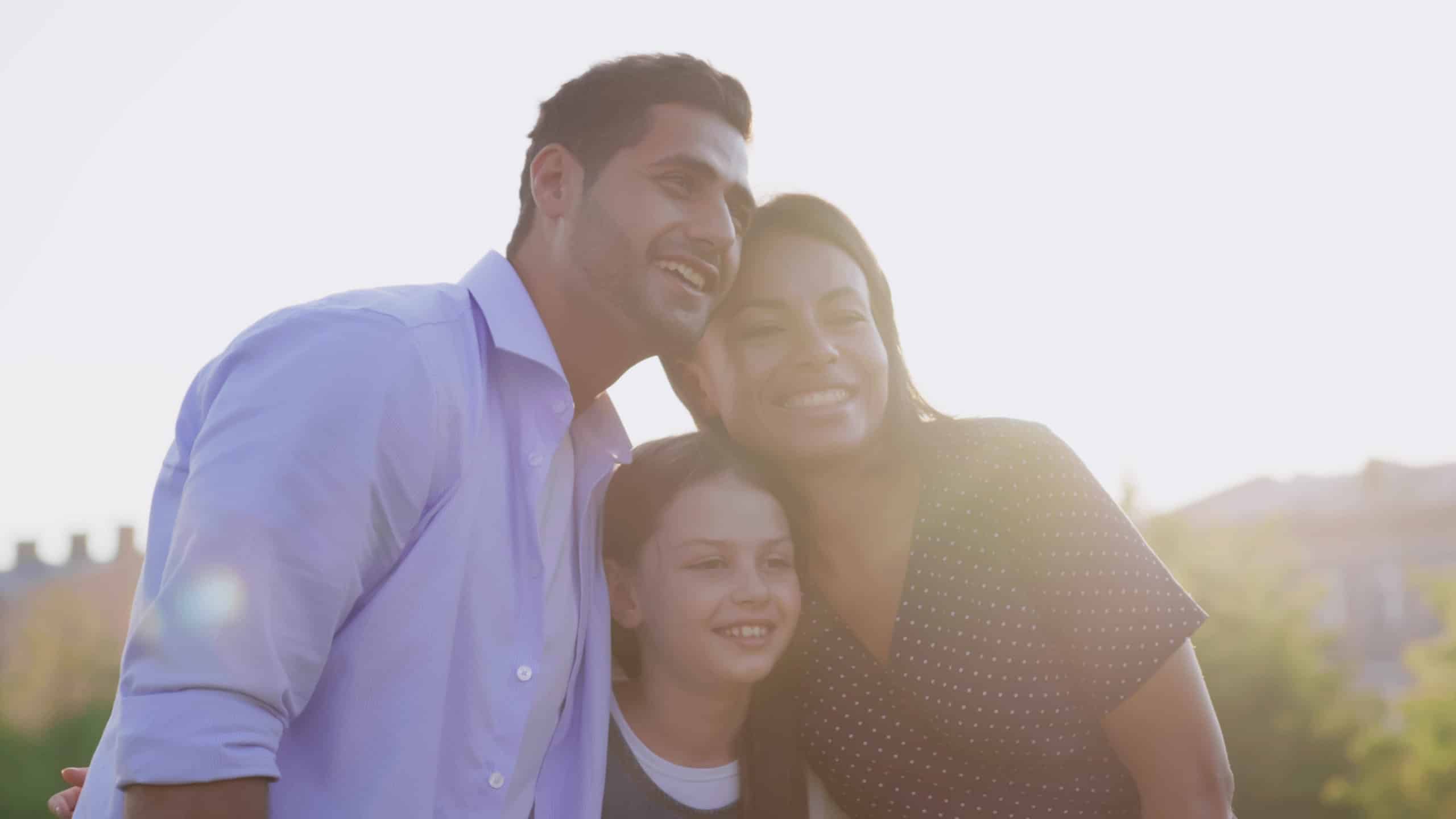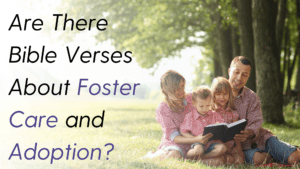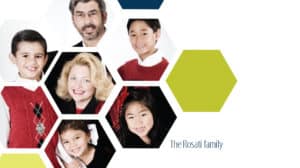The foster care system is different in every state. Each state has its own requirements, organizations, and processes. Focus on the Family is thrilled to partner with on-the-ground champions for children in foster care in the state of Florida. Below, you will find practical information about taking the next step to help vulnerable children in Florida’s foster care system.
Who Are the Children in Foster Care?
Children enter foster care when their home is unsafe. These children have done nothing wrong. Rather, they have experienced abuse, trauma, or neglect. For their protection, these children are removed from their homes and placed in the temporary care of someone else. Often, agencies try to find relatives or close friends who can care for the child. If this is not possible, the child will be placed with a foster family.

There are currently over 22,0001 children in the Florida foster care system. Over 4,5002 of those children are legally free for adoption. And approximately 8003 children age out of foster care each year in Florida. It may seem like there is nothing you can do to help, but the truth is that everyone can do something. Whether you are called to foster, adopt, or support foster and adoptive families, you can make a difference in these children’s lives.
Why Florida Needs More Foster Families
Abuse, neglect, and abandonment lead to trauma. Children in foster care need loving, stable homes to begin healing from the trauma they have faced. Foster families have the opportunity to love a child – whether for a day, a month, or sometimes a lifetime. Although fostering is difficult, it is also incredibly rewarding. Foster families can change a child’s life by stepping up and filling a gap.
Children entering foster care may need extra support and encouragement from their foster families. They may need tutoring, therapy appointments, specialized care, or other accommodations. Foster families should prayerfully consider their strengths and weaknesses when approaching fostering. Most importantly, they should seek out support. There are countless organizations that want to support and encourage foster families as they serve children in foster care.
Florida’s Foster Care System
Florida’s foster care system is unique because it is privatized. This means that certain agencies hold contracts with the state in each judicial circuit. These are “lead agencies,” and they manage cases, placements, and licensing. Lead agencies partner with other local providers, such as One More Child, to recruit, license, train, and support foster families.
Depending on where you live, you have a variety of options of what agency or local organization to work with. The first step to becoming a foster family is to tell someone. Florida families can call the Foster Information Center to speak with current or former foster parents: 1-833-678-3735. A prospective foster parent can also request a call or email from a Foster Community Ambassador by filling out this form. Finally, families can directly contact the local community-based care agency (CBC) in their area.
How to Get Started as a Foster Family in Florida
The typical time frame to become a licensed foster home or an adoptive parent in the state of Florida is six to nine months. There is little to no cost to become a foster family. Additionally, there are plenty of organizations ready to assist you in your journey.4
Prior to certification, potential foster parents must complete these five steps:
- Attend an orientation
- Complete free foster parent educational resource hours (i.e., foster parent training)
- Have a child abuse background check and fingerprint-based criminal background check
- Have a home inspection
- Complete a home study
Once you have completed the required steps and are approved to become a licensed foster family, you will receive your first placement. It is important to have a support system in place during this time. Do you have friends or family members you can talk to about both the beautiful and the hard moments? Are you connected to a church ministry or to other foster families in the area? Your agency will also offer support, including ongoing training and resources.
Types of Licensure in Florida
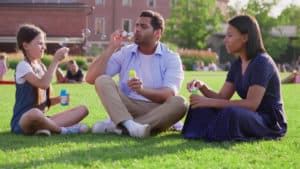
Florida has five different levels of foster care licensure. The “traditional” level of foster care licensure is Level 2. This level is for Non-Child-Specific Foster Homes, meaning that the foster family is open to fostering without a specific child in mind. Most families interested in traditional foster care will likely pursue a Level 2 license.
Level 1 (Child-Specific Foster Home) licensing is designated for relatives or non-relatives who have an existing relationship with a child in foster care. For example, grandparents, aunts and uncles, close family friends, neighbors, teachers, and others can pursue this license for a specific child. Because this level is child-specific, there may also be some flexibility with non-safety-related requirements to help the family become licensed more quickly.
Levels 3 through 5 are for foster families who can provide specific services and care. Level 3 licensing is for foster homes that can provide safety and stability for victims of human trafficking. Level 4 licensing is for caregivers who have received special training to care for children with significant emotional, behavioral, or social needs. Finally, Level 5 licensing is for caregivers with special training to care for children and teens with medical complexities.5
Other Ways to Support Children in Foster Care
Caring for vulnerable children is a command for Christians. We may all approach this calling differently. Some people are called to foster or adopt, but others are called to support. Supporting foster and adoptive families is a crucial role.
Volunteer with Local Organizations

One way you can support families is by volunteering your time. If your church does not have a foster/adoptive ministry, you could be the person to lead one. However, if you want to start small, you can find a foster family in your community to support. For example, you can bring meals, offer to run errands, offer words of encouragement, and so much more.
If you need suggestions or ideas of where to start, reach out to local foster care agencies and bridge organizations! There is always a need for volunteers, and many organizations in Florida have a variety of roles you can choose from.
Financially Support Ministries and Organizations
You can be a blessing to organizations working to help vulnerable children by supporting them financially. If you feel called to support a specific organization or ministry, give generously. Your gift will support the important work of advocating for children in foster care.
Since 2008, Focus on the Family has provided an opportunity for people to directly support children in foster care through its Wait No More® program. One such way is by providing a suitcase, Bible, and teddy bear to children in foster care. Through the donations to Wait No More, Focus on the Family provides these suitcase bundles to children across the country.
Children and youth in foster care face a constant risk of moving. It is common for children and youth who grow up in foster care to move homes and schools more than ten times. While each case is different, some of these children are carrying trash bags around each move. These suitcase bundles can change many of their lives. Are you willing to donate to Wait No More and provide a child with a suitcase, Bible, and teddy bear?
Pray for Children and Teens in Foster Care
Finally, do not underestimate the power of prayer. Even if you do not live in Florida, your prayers can make a difference for children in foster care. Although each state runs its foster care system differently, you can always pray for children in Florida and across the United States.
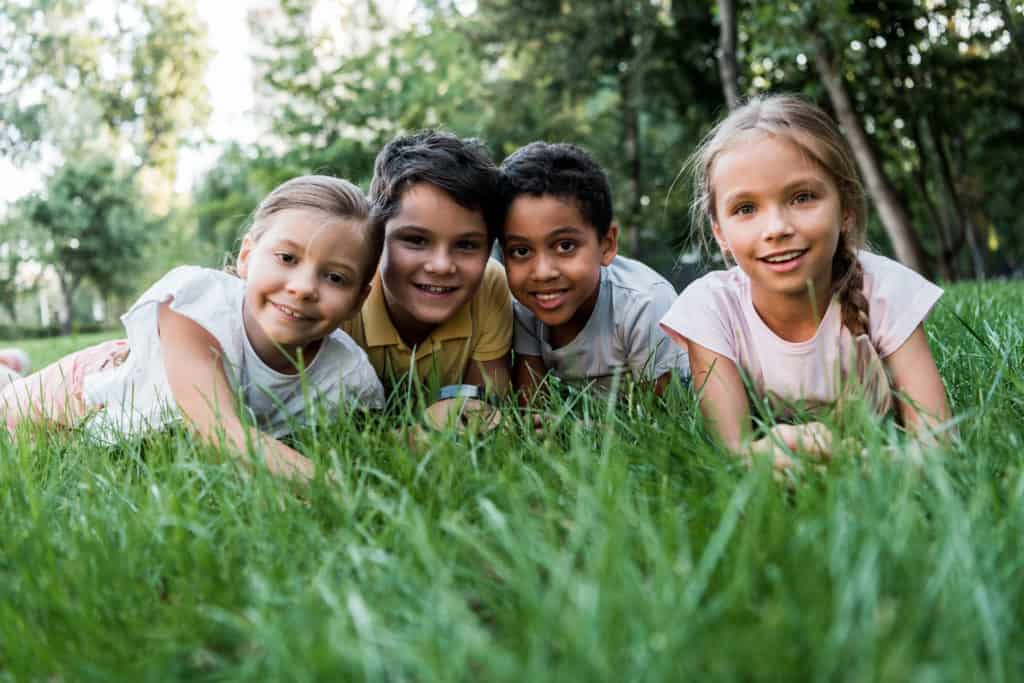
1 “Children & Young Adults in Out-of-Home Care – Statewide.” Florida Department of Children & Families.
2 “Adoptions Achieved – Statewide.” Florida Department of Children & Families.
3 “Young Adults Aging Out and Educational Achievement – Statewide.” Florida Department of Children & Families.
4 “Florida foster care and adoption guidelines.” AdoptUSKids.
5 “Levels of Foster Care Licensure.” Florida Department of Children & Families.









